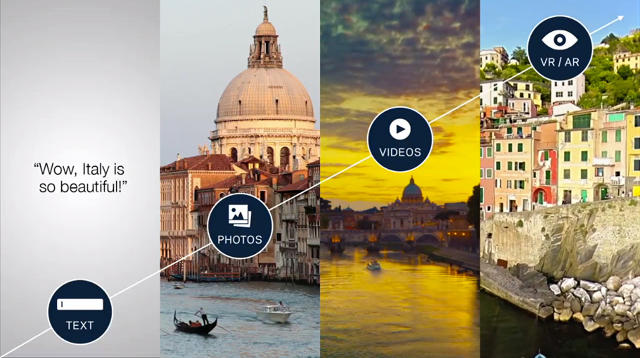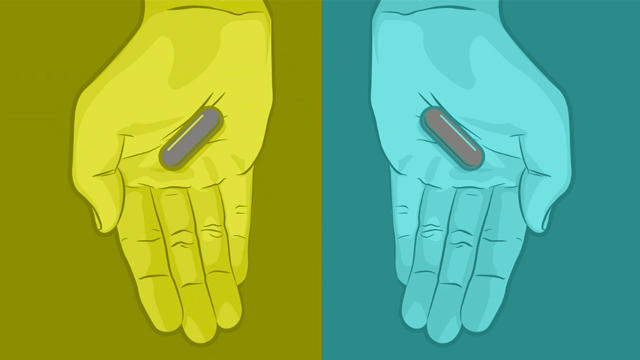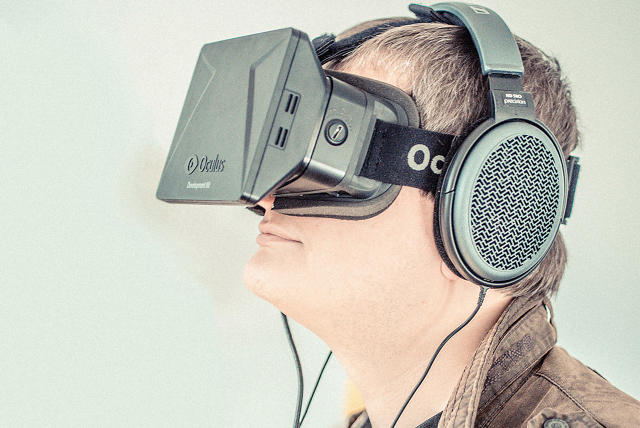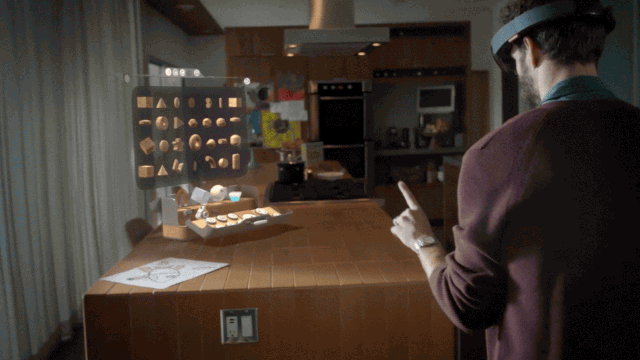
In 10 years, Facebook would like anyone, anywhere, to be able to strap on a virtual reality headset and share moments with friends and family across the world. It’s the vision of a digital utopia that Facebook reps shared onstage during the annual F8 conference. Mark Zuckerberg himself pointed to a simple graph showing that we’re sharing more and more complex experiences. The natural endpoint is virtual and augmented reality.

If you look beyond the silly goggles for a moment, it’s a beautiful conceit about connecting humanity. Except for one thing: They don’t want to simply map Facebook on a world that already exists, adding share buttons to life events. They want to suck the real world inside Facebook’s virtual walls. They want you to live in the Facebook Matrix.
Michael Abrash, the chief scientist of Oculus VR (itself owned by Facebook) quoted the movie more than once, saying it gave him “a deep sense of what VR could be,” referencing red and blue pills and the nature of reality. Then, over the course of about 20 minutes of presenting visual illusion after visual illusion, he made a strong case that Morpheus’s fundamental question of the film, “What is real,” is extremely well-founded by perceptual science. He showed off optical illusions like the Ames window and the McGurk effect, among others, to prove the point that reality can be illusory.

Facebook is building an entire infrastructure to suck your physical life into its digital world.
Then, in a relatively aggressive turn of events, Abrash declared, “Unlike Morpheus, I’m not offering you a choice [of pills] today. No matter what you pick, we’re heading down the rabbit hole together.”
So what is down that rabbit hole? Is it virtual reality that’s waiting for us? Yes, but it’s not quite that simple: Facebook is building an entire infrastructure to suck your physical life into its digital world, and there are three pieces of-let’s say evidence-that point me to this conspiracy theory of a conclusion.
First, earlier in the F8 conference, Facebook made another big announcement. Its widely used app development platform Parse had been enhanced to let developers tap into the Internet of Things ecosystem with just a few lines of code. Its example? An automatic plant watering system. Literally, a few lines of code brought it online and gave it logic. You might simplify that idea by saying a few lines of code made a relatively dumb device able to talk to Facebook.

Second, for the things in ours lives that can’t be connected to Parse-such as live events like basketball games-Facebook demonstrated an algorithm it developed that can discern hundreds of different sports occurring in real time. It’s the sort of visual artificial intelligence we’ve seen mastered by Microsoft. And sure, while it’s just for sports, it proved a point. Facebook is building out the capability to automatically define the world around you just by seeing it through a camera.
You’ll be able to pull the real world into virtual reality.
And third, Abrash detailed a tiny bit more on what using Oculus Rift in the future might look like. Today, users are stuck looking at a video game or movie that takes up their entire perception. But eventually, Abrash said the platform would evolve.
“You’ll be able to pull the real world into virtual reality so you can pick up your coffee cup [at your desk],” he said. “You’ll be able to map your surroundings so you can stand up and walk around.”
That mapping point might sound familiar: A major PC gaming company named Valve is developing virtual reality hardware with the smartphone manufacturer HTC. Its coup de grâce is its ability to map your room automatically, allowing you to walk around a virtual space without banging your head in your real space.

But for Facebook’s purposes, Abrash didn’t just agree with Valve’s approach, he drew a line in the sand. Oculus Rift is not augmented reality-it is not a Microsoft Hololens, or a Magic Leap that paints a few digital images on top of the real world. Abrash says that you will bring your real coffee cup into the Facebook Matrix and drink it there.
Couple Abrash’s point of view with the fact that Facebook is developing the Parse technology to connect our devices to the cloud and the AI capability to identify the world around us via visual algorithms-and I know I’m sounding loony here-and you have an entire infrastructure that allows you to interact with real physical things inside your fake digital world, just as Abrash teased.
It all leads to Facebook’s 10-year virtual reality conclusion: When our friends are connected, our devices are connected, and our faces are connected, we’ll all trap ourselves within the walls of Facebook, too starry-eyed to ever leave.